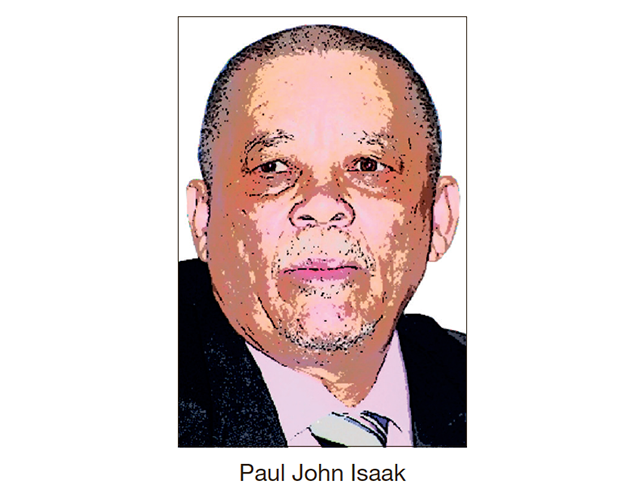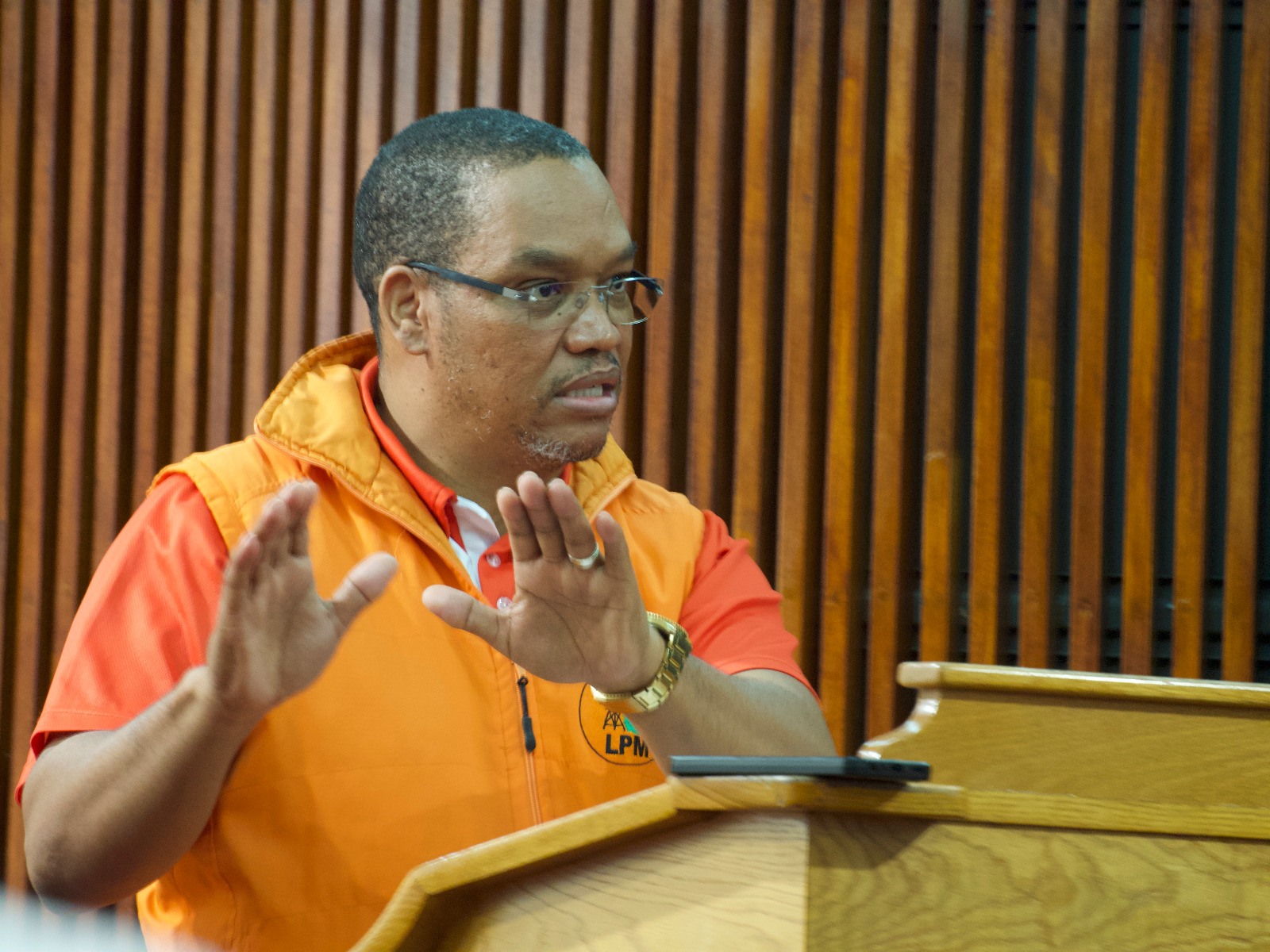PAUL JOHN ISAAKHISTORY reminds us that human rights and policy successes aimed at promoting the welfare of the people have always emerged victorious against the evils of colonialism, racism, and apartheid. In today’s context, the ideals of prosperity and economic progress should not be at the expense of human dignity and development. Shared prosperity needs to be employed to eliminate corruption, which delays, distorts and diverts economic growth.
The belief that everyone must be treated humanely and in the spirit of ubuntu is the foundation of religious, political, economic and social teaching. If not, corruption is propagated by prevailing economic structures that do not actively seek a just economic order. Instead, they are driven by greed, the relentless pursuit of power, profit and material gain for religious leaders, corporations, political bodies, administrators and individual actors.
Corruption is the misuse of public office for private gain. The prevailing corruption has three faces: Incidental corruption – individual acts of malfeasance such as petty or grand corruption; institutional corruption when ministries, offices, and government agencies are riddled with corruption; and systemic corruption that infects society as a way of life and is sometimes even overlooked by a legal authority. Like a virus, corruption can spread throughout all layers of a government, resulting in untold losses of revenue and stifling public confidence in a government’s ability to serve the public interest.
Corruption happens when people are “eating” their daily bread without sweat on their faces, according to Genesis 3:19. The “eating” is reserved for those not sweating and not labouring for the fish, diamonds, gold, oil, and corn. The mining, ploughing, sowing, reaping, threshing, winnowing, grinding, sifting, and kneading happen through the sweat of the workers while the “eating” is done by corrupt elites. That’s the face of corruption.
Like most countries, Namibia is aware of and aims to deal with corruption. Namibia instituted the Anti-Corruption Act (No 8 of 2003). This act established the Anti-Corruption Commission and outlined its functions related to fighting corruption. Likewise, the Constitution establishes the ombudsman who shall have “the duty to investigate vigorously all instances of alleged or suspected corruption and the misappropriation of public monies by officials and to take appropriate steps, including reports to the prosecutor general and the auditor general pursuant thereto”.
We are empowered and enabled to fight corruption together with the two mentioned governmental agencies. It is a legal and constitutional fight. Sacred and secular bodies such as faith-based and civil organisations should be part of this struggle. Globally, organisations of this nature are known for their prophetic voices, as sites of the struggle, as community and enabling voices so that the poor can have access to daily services such as water, electricity, food, education, and medicine.
Mother Teresa said such organisations are the eyes, hands and feet of the people and societies and governments. They are the eyes that look with compassion, the hands that feed, and the feet that walk the talk for the common good.
Or, as vividly described by Franz Fanon in his book ‘The Wretched of The Earth’, “in the colonies, the truth stood naked, but the citizens of the mother-country preferred it with clothes on: The native had to love them, something in the way mothers are loved”. So, why love corruption in the cloth of capitalism at the expense of ubuntu?
Making history on corruption, for the right reasons, is not far-fetched. French novelist Victor Hugo wrote that the future has many names: “For the weak, it is the unsusstainable. For the fearful, it is the unknown. For the bold, it is the opportunity.” Or, as expressed by Barack Obama, “we are met with cynicism and doubts and those who tell us that we can’t, we will respond with that timeless creed that sums up the spirit of a people: Yes, we can.”
In short, we can strive to be ranked among the top six least corrupt nations in the world: Denmark, Finland, New Zealand, Sweden, Singapore and Switzerland. We emerged victorious in our struggle against colonialism, racism and apartheid. Why not against corruption?
Stay informed with The Namibian – your source for credible journalism. Get in-depth reporting and opinions for
only N$85 a month. Invest in journalism, invest in democracy –
Subscribe Now!










